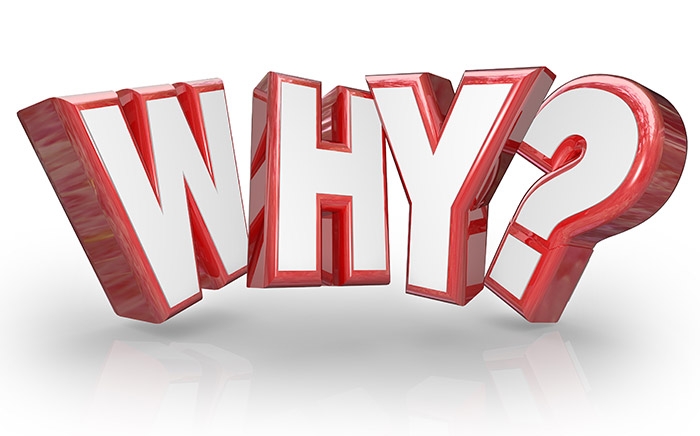Global Cannabis Laws Guide: Panama, Philippines, Croatia, Dominican Republic, Scotland, Sweden, and Barbados
Overview
This guide answers whether cannabis is legal in Panama, the Philippines, Croatia, the Dominican Republic, Scotland, Sweden, and Barbados. It focuses on what is permitted for medical and non-medical use, how to comply with local rules, and practical steps if you need treatment or are traveling. Where verified links are available, they are included; where not, detailed textual guidance is provided to help you find official sources.

Source: theindoornursery.com
Panama: Is weed legal?
Non-medical (recreational) use
is illegal in Panama. However,
medical cannabis
is legal and regulated under Law 242 of 2021 and subsequent decrees, with oversight for licensing, production, and distribution established by authorities referenced in legal analyses and policy summaries. Medical access requires physician oversight and registration within the regulated program, while recreational possession and use remain prohibited
[1]
. A 2025 legal practice guide confirms there is
no current legislative appetite
to decriminalize recreational use and clarifies technical definitions for medical products, including THC thresholds and CBD distinctions within Panamanian regulations
[2]
. Recent coverage notes the National Assembly approved a bill to regulate hemp production and export, pending presidential action, which does not change the illegality of recreational cannabis
[3]
.
Action steps if you need treatment in Panama:
- Consult a licensed physician to determine eligibility for medical cannabis under national rules and ensure registration through authorized channels referenced in Panamanian policy [1] .
-
Ask your physician how your prescription will be filled through licensed pharmacies and how product categories align with the
controlled substance
definitions described in legal commentary [2] . - If you work in the sector, monitor official announcements regarding hemp regulation and licensing requirements as reported by industry news [3] .
Philippines: Is weed legal?
As of the latest widely reported framework, recreational cannabis remains illegal in the Philippines, and individuals may face strict penalties for possession or use. While there have been legislative discussions over the years about medical access, travelers and residents should assume prohibition unless and until updated official guidance is issued. Because some proposals may change, you can search for the Department of Health or Dangerous Drugs Board guidance using terms like “Philippines cannabis law medical access” to find current official notices. Use strong caution and do not rely on prescriptions from other countries for lawful possession in the Philippines.
Action steps:
- Confirm current law by checking official Philippine government portals or contacting legal counsel; penalties for possession are stringent and enforcement is active.
- If you use prescribed medical cannabis abroad, plan alternative therapies while in the Philippines and carry only non-controlled prescriptions that clearly comply with Philippine pharmacy rules.
Croatia: Is weed legal?
Croatia has allowed limited medical cannabis on prescription through pharmacies for certain conditions, while recreational use remains illegal . Historically, small quantities for personal use could be treated as a misdemeanor with fines rather than criminal penalties, but possession is still unlawful and can have consequences. If you have a legitimate medical need, you can consult a Croatian physician for eligibility and pharmacy dispensing procedures. Importing cannabis products into Croatia, including from other EU countries, may be illegal without special authorization, so do not travel with cannabis unless you have confirmed legal allowances with Croatian authorities.
Action steps:

Source: 2fast4buds.com
- Consult a local physician for medical eligibility and pharmacy dispensing options; request written confirmation of the specific product and dosage approved.
- Do not cross borders with cannabis products; instead, plan to fill prescriptions within Croatia under local rules.
Dominican Republic: Is weed legal?
In the Dominican Republic, cannabis for non-medical use remains illegal . There is no broad medical cannabis program comparable to jurisdictions that have enabled prescription-based access. Travelers and residents should avoid possession and consumption. News coverage and regional reports consistently characterize the framework as prohibitive for recreational use. If future changes occur, they would be announced via official Dominican government communications. For now, plan travel assuming prohibition for both recreational cannabis and most cannabis-derived products.
Action steps:
- Avoid carrying or using cannabis products, including edibles and oils, while in the country.
- For therapeutic needs, speak to your physician about non-controlled alternatives that can be lawfully carried and used under Dominican law.
Scotland: Is marijuana legal?
Scotland is part of the UK legal framework. In the UK, recreational cannabis is illegal . However, medical cannabis can be prescribed by specialist clinicians for specific conditions when clinically appropriate, with products supplied through licensed channels. Even with a valid prescription, patients must follow UK prescribing and dispensing rules; foreign prescriptions may not be valid. Possession without a UK prescription is unlawful. Public consumption is not permitted, and driving under the influence is a criminal offense.
Action steps:
- If residing in Scotland, seek referral to a specialist clinician who can determine eligibility for cannabis-based medicines.
- Keep documentation of your prescription and dispensing information; do not assume that prescriptions from other countries will be accepted.
Sweden: Is marijuana legal?
Sweden enforces some of Europe’s strictest drug laws. Recreational cannabis is illegal , and possession and use can lead to criminal penalties. There is a narrow pathway for medical cannabis via special permits on a case-by-case basis through the Swedish medical system, but access is limited and controlled. Travelers should assume that personal possession, even if prescribed elsewhere, is not allowed without Swedish authorization. Enforcement includes testing and strict impairment rules; driving under the influence is criminally sanctioned.
Action steps:
- If seeking treatment in Sweden, speak with a Swedish physician about special permit options and whether your condition qualifies; expect limited availability.
- Do not bring cannabis into Sweden without explicit Swedish authorization.
Barbados: Is weed legal?
Barbados has implemented a medical cannabis framework and a regulated industry for cultivation and production, while recreational cannabis remains illegal . Religious sacramental use may have limited allowances through specific permits in some Caribbean jurisdictions; however, travelers should not assume permission without explicit authorization in Barbados. For medical purposes, patients typically require authorization via local regulations and must obtain products through licensed channels in Barbados. Visitors should not attempt to import cannabis products without permission.
Action steps:
- Consult a local physician in Barbados to evaluate eligibility within the medical program and to understand dispensing through licensed providers.
- If you are an industry participant, review licensing pathways with the Barbados medicinal cannabis authority and ensure compliance with security, tracking, and export rules before pursuing commercial activity.
Travel, Compliance, and Practical Planning
Because each jurisdiction sets different definitions for controlled substances, THC thresholds, CBD status, and licensing rules, assumptions from one country rarely carry to another. For example, Panamanian legal commentary distinguishes products with less than 1% THC in certain contexts of control versus medical definitions, while making clear there is no momentum to legalize recreational use [2] . Meanwhile, policy summaries emphasize that Panama legalized medical use but kept personal non-medical use illegal, underscoring that travelers should not carry cannabis across borders [1] . Also, the Dominican Republic remains prohibitive for recreational use, and prospective reforms would need official confirmation before any practical change is assumed.
Planning steps if you use medical cannabis:
- Carry a physician’s letter detailing diagnosis, dosage, and non-cannabis alternatives; this can help you transition to lawful therapies where cannabis is prohibited.
- Before travel, search the official health ministry or medicines regulator for each destination to confirm current rules. Use terms like “medical cannabis prescription [country] regulator” and verify dates on any guidance.
- Never transit with cannabis unless you possess explicit authorization valid in both the departure and destination jurisdictions.
Industry and Investment Considerations
Operators evaluating opportunities should assess jurisdictional stability, clarity of licensing, product definitions, and cross-border rules. In Panama, industry sources report active regulatory developments for medical cannabis and potential hemp regulation, with the latter’s bill having been sent to the President for approval or veto, which could impact agricultural and export prospects if enacted [3] . Legal analyses caution there is no movement toward recreational decriminalization and detail compliance boundaries for product composition and controlled status [2] . Business plans should incorporate compliance budgets, product testing requirements, physician engagement strategies, and patient registry interactions where applicable [1] .
Step-by-Step Compliance Checklist
- Confirm local status. Identify whether your destination allows medical use, prohibits recreational use, or offers special permits. Use official ministry or regulator portals and verify the date of publication.
- Consult a local clinician. If medical use may be available, schedule an appointment with a licensed physician in-country to assess eligibility and appropriate products.
- Understand dispensing rules. Clarify which pharmacies or licensed providers can dispense and what documentation you must carry.
- Avoid cross-border transport. Arrange to fill prescriptions locally; do not rely on foreign prescriptions unless the local law explicitly recognizes them.
- Prepare alternatives. If traveling to a prohibitive country (e.g., Philippines, Dominican Republic), discuss non-controlled therapeutic options with your physician before departure.
- Monitor updates. Laws can evolve; track reputable legal analyses and official notices for changes to medical programs or hemp regulations.
Key Takeaways by Destination
- Panama: Medical cannabis legal with regulated access; recreational illegal; hemp regulation pending executive action [1] [2] [3] .
- Philippines: Recreational illegal; assume no broad medical access without current official authorization. Verify with government guidance before relying on any medical claims.
- Croatia: Limited medical access via prescription; recreational illegal; importing products without authorization is risky and typically unlawful.
- Dominican Republic: Recreational illegal; no broad medical framework-avoid possession and use.
- Scotland (UK): Recreational illegal; specialist-prescribed medical cannabis possible under UK rules.
- Sweden: Recreational illegal; very limited medical access via special permits only.
- Barbados: Medical industry established; recreational illegal; follow licensing and dispensing rules for lawful access.
References
[1] Leafwell (2023). Panama medical cannabis legal; recreational illegal. [2] Chambers Practice Guide (2025). Medical Cannabis & Cannabinoid Regulation-Panama. [3] Cannabis Science & Technology (2025). Panama Assembly approves hemp regulation bill.



